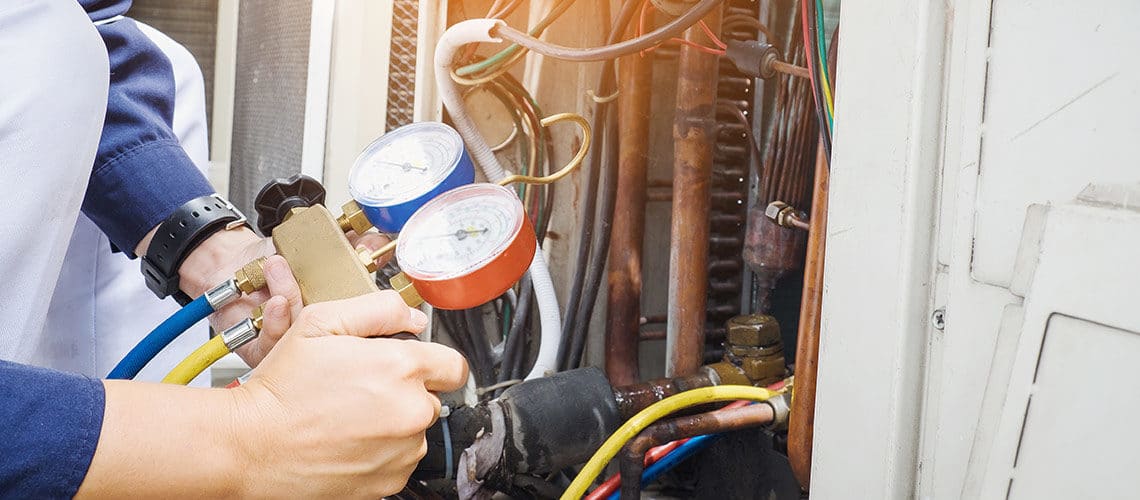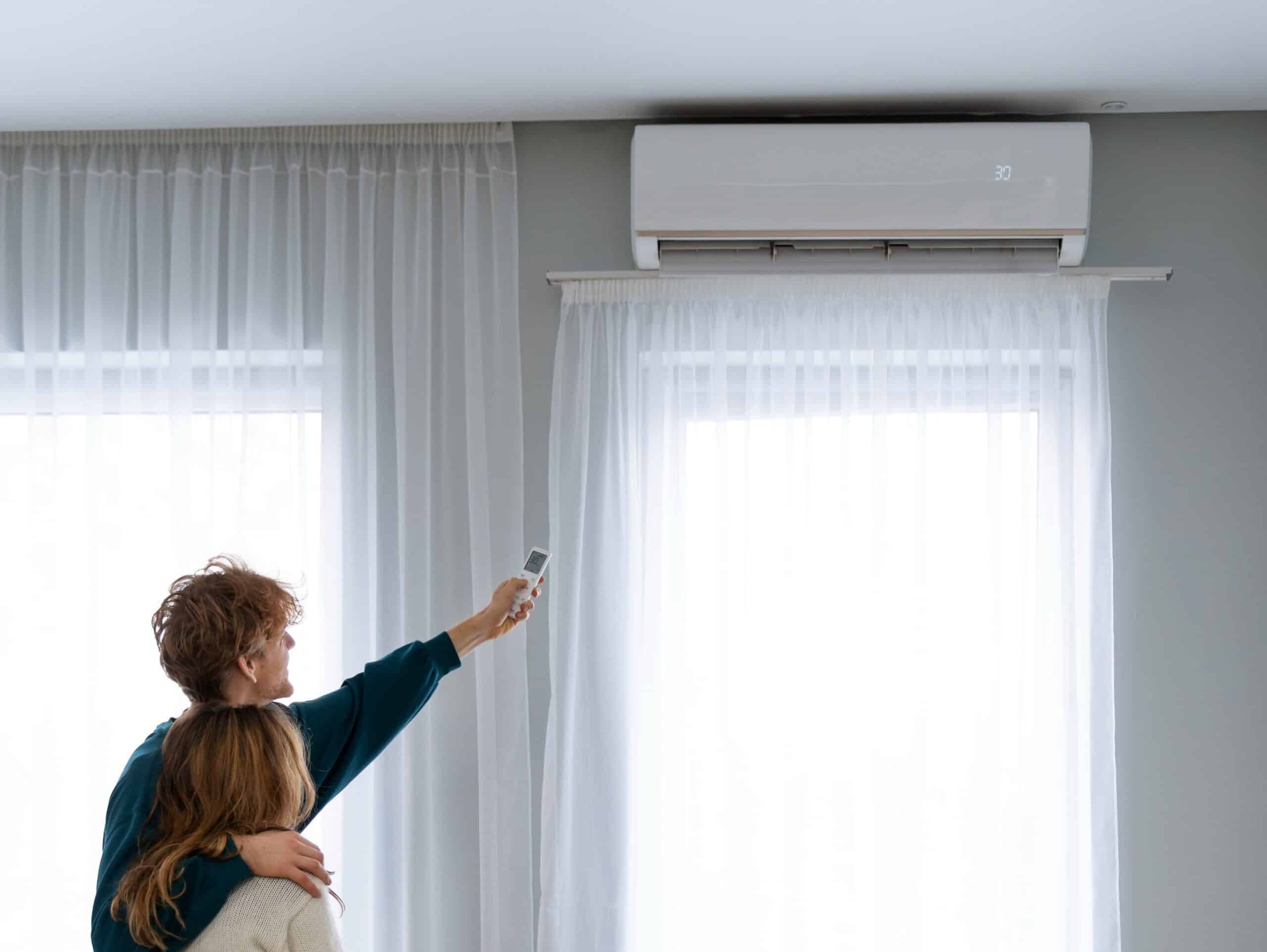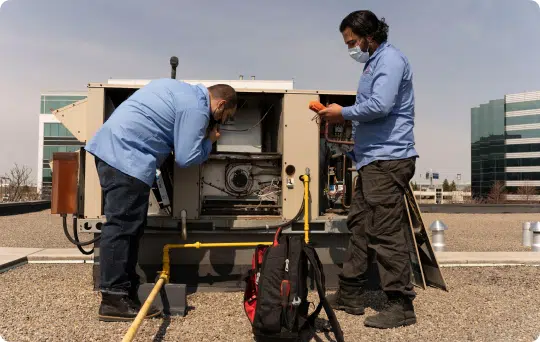Energy-Efficient Heating And Cooling Solutions to Minimize Energy Bills
As power prices remain to climb, the relevance of energy-efficient HVAC systems becomes increasingly noticeable. These systems not only assure significant financial savings on energy costs however also contribute to a more lasting future by decreasing power intake. With numerous alternatives offered, including geothermal heatpump and ductless mini-splits, property owners encounter a plethora of options that can enhance comfort and air quality. Recognizing the key features and upkeep requirements is essential to making best use of these advantages. What variables should be prioritized when picking the best system for your needs?
Benefits of Energy-Efficient Cooling And Heating Solutions
Energy-efficient cooling and heating systems provide countless benefits that expand past simple price financial savings. One significant benefit is the lowered ecological influence. By taking in much less energy, these systems add to decrease greenhouse gas emissions, aiding to battle environment change and promote sustainability. This aligns with raising societal demands for green practices in household and industrial setups.
Additionally, energy-efficient a/c systems usually give enhanced comfort levels. Much of these systems feature sophisticated innovation that enables better temperature control and improved air quality (DMAKS HVAC). This results in a much healthier interior atmosphere, which is especially crucial for individuals with allergic reactions or respiratory issues
Furthermore, investing in energy-efficient HVAC systems can enhance property worth. As even more customers prioritize energy effectiveness, homes and buildings geared up with these systems may bring in greater bids in the property market.
Kinds Of Energy-Efficient Cooling And Heating Options
Just how can homeowners and companies select one of the most appropriate energy-efficient heating and cooling choices for their requirements? The marketplace supplies a selection of energy-efficient a/c systems, each designed to enhance convenience while reducing power usage.
One alternative is the variable cooling agent flow (VRF) system, which efficiently regulates the temperature in numerous zones within a structure. This system adapts its cooling agent flow to match the wanted temperature level, causing significant power financial savings.
One more prominent choice is geothermal warmth pumps, which utilize the planet's stable temperature level to warmth and great rooms. By transferring warm to and from the ground, these systems demonstrate remarkable effectiveness, specifically in moderate environments.
In addition, ductless mini-split systems offer an energy-efficient choice for homes lacking ductwork. These systems enable zone-specific heating and cooling, minimizing power waste in unoccupied areas.
Last but not least, high-efficiency heating systems and air conditioners, with sophisticated SEER and AFUE rankings, provide reputable environment control while consuming less power than standard models. By examining these alternatives, property owners and services can pick an a/c system tailored to their particular requirements and power performance goals.
Key Functions to Take Into Consideration

Following, investigate the kind of compressor used in the system. DMAKS HVAC. Variable-speed compressors can readjust their result to match the heating or cooling down demand, causing improved convenience and power cost savings compared to single-speed versions. Furthermore, try to find systems geared up with wise thermostats that offer programmable setups and remote accessibility, permitting far better control over energy usage
An additional critical feature is the system's air filtration capability. High-efficiency filters can improve interior air quality and reduce power intake by ensuring the system runs successfully. In i was reading this addition, take into consideration the kind of cooling agent utilized; modern-day systems frequently use eco-friendly refrigerants that have a reduced ecological effect.
Finally, guarantee that the system works with zoning technology, which enables for personalized temperature control in various locations of your home, improving convenience while lessening energy use.
Tips for Picking the Right System


Following, think about energy performance rankings, especially the Seasonal Power Performance Proportion (SEER) for cooling systems and the Annual Gas Use Performance (AFUE) for heating unit. Higher rankings suggest greater effectiveness, which can cause significant financial savings on energy bills over time.
Furthermore, assess the sort of a/c system that best suits your way of life and spending plan. Alternatives include main air conditioning, ductless mini-splits, and heatpump, each with its own collection of advantages and drawbacks.
Do not neglect the relevance of appropriate installment and sizing; an inaccurately sized system can lead to inadequacies and increased wear. Last but not least, speak with an expert HVAC service provider to obtain experienced recommendations customized to your home's one-of-a-kind demands. This thorough method browse this site will ensure that you select an energy-efficient heating and cooling system that fulfills your demands and budget plan properly.
Maintenance for Ideal Effectiveness
As soon as the best cooling and heating system is in place, continuous upkeep ends up being vital to guaranteeing ideal performance and longevity. A well-maintained system runs better, causing lower energy consumption and reduced utility expenses. Routine assessments and tune-ups need to be set up at the very least twice a year-- once before the cooling season and once before the home heating period.

Home owners ought to also be cautious regarding checking their heating and cooling system's efficiency. Uncommon noises, rising and fall temperatures, or boosted energy expenses can suggest underlying issues that need prompt interest. By resolving these concerns quickly, homeowners can stop pricey repair work and prolong the life-span of their systems.
Purchasing a maintenance plan with a certified technician not only improves effectiveness but likewise gives comfort, knowing that the system is operating at its finest. DMAKS HVAC. Routine upkeep is therefore vital for maintaining power performance and lowering general operational expenses
Final Thought
Finally, energy-efficient cooling and heating systems offer a practical solution for lowering utility costs while enhancing comfort and air quality. By integrating sophisticated innovations and options such as geothermal heatpump and ductless mini-splits, homeowner can accomplish considerable power cost savings and add to ecological sustainability. Cautious consideration of system features and continuous maintenance further ensures Full Article ideal performance, making energy-efficient systems a prudent financial investment for both financial and ecological advantages.
Comments on “Timely Heating Repairs Done Right by DMAKS HVAC Experts.”